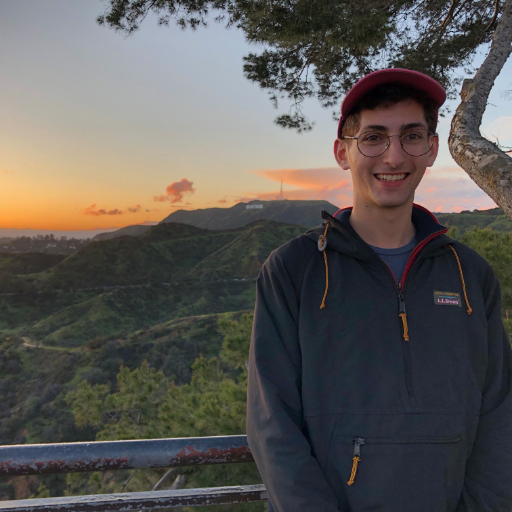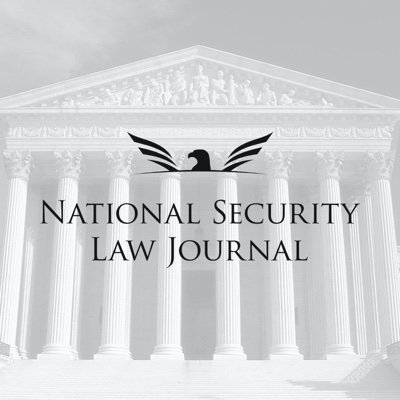
Science and Technology Law Review (STLR)
@columbiastlrThe Columbia Science and Technology Law Review, @columbialaw. Available at https://t.co/fA4JcXOa21. Currently accepting submissions at https://t.co/VeJggNscGe.
Similar User

@GaLRev

@FordhamLRev

@MinnesotaLawRev

@denverlawreview

@DukeLawJournal

@uclawjournal

@SCalLRev

@NwULRev

@HULawJournal

@PennStLRev

@GSULawReview

@WFULawReview

@CaseWRsrvLRev
📢 Only two days until our Symposium, "Judging Science," takes place at Columbia Law School! Attendees can get CLE credits in addition to lunch. Please register in advance at forms.gle/317jKG1Cy96qnz… to get access to the building!


This post discusses the particular need for AI guidelines in the arbitration space and the unique challenges drafters face when trying to implement such guidelines. journals.library.columbia.edu/index.php/stlr…
How can courts balance affordable medicine access with the drive for pharmaceutical innovation? This post examines the impact of eBay v. MercExchange on drug patent injunctions and argues for a stronger public interest role in securing access to generics. lnkd.in/eFRfENSj
With dozens of AI bills flooding California's legislature, lawmakers struggle to find the balance between technological innovation and public safety. This article explores the state's effort to regulate the AI industry. For the full blog post: lnkd.in/dg6eTt8T
Evidence is a critical piece of any lawsuit. But what if the evidence is scientific and technical? How do judges and juries assess such evidence in making decisions? Join us next Friday (11/8) at our Symposium, "Judging Science," to learn more. RSVP at: forms.gle/e55ecZ7agLo3Ma…
Our most recent blog post, "Cloned Companions: The Commercialization of Pet Cloning," explores the origins and development of pet cloning and discusses the implications of its commercialization. Read the full blog on: journals.library.columbia.edu/index.php/stlr…
The use of differential privacy in the 2020 census sparked an interesting debate on the legal ramifications of integrating modern data science techniques into political districting. Read more about this topic on our blog: journals.library.columbia.edu/index.php/stlr…
In anticipation of the decision against Coinbase that came down this week, our staff editor had contemplated the significance of the hearings for Coinbase and Binance cases on the crypto industry. New blog post by Jinwan Cho journals.library.columbia.edu/index.php/stlr…
How has the music industry and the US government reacted to AI-generated songs that mimic the voices of popular artists? New blog post by Sandra Ascencio journals.library.columbia.edu/index.php/stlr…
Discover how US regulators are combating deceptive tactics known as dark patterns and uncovering how these design practices manipulate consumer choices. New blog post by Amy Lee Tan journals.library.columbia.edu/index.php/stlr…
Florida is the first state to get approval from the FDA to import drugs from Canada, but obstacles to importation remain. New blog post by Kira Nash journals.library.columbia.edu/index.php/stlr…
California recently allowed speed cameras in six cities. In other jurisdictions, speed cameras have reduced speeding but have also disproportionately impacted low-income communities and people of color. How does California’s program compare? journals.library.columbia.edu/index.php/stlr…
Will the US repeat its past mistakes in regulating AI? New blog post by Faisal Hijjawi journals.library.columbia.edu/index.php/stlr…
Deepfakes are often created without consent. Tort law provides an avenue of relief, though an unpaved one. However, courts must be willing to adapt and apply existing common law principles. New blog post by Elif Hamutcu journals.library.columbia.edu/index.php/stlr…
Does being a competent lawyer require allowing a machine to think for you? New blog post by Ben Mingov journals.library.columbia.edu/index.php/stlr…
The FDA last issued guidance regarding the promotion of prescription drugs on social media in 2014. Has the digital media landscape outgrown these regulations? New blog post by Stephanie Zielinski journals.library.columbia.edu/index.php/stlr…
The ITC ordered Apple to stop importing its watches into the U.S. Now it’s up to Biden to decide. New blog post by Neal Sarkar journals.library.columbia.edu/index.php/stlr…
Mark Lemley of @StanfordLaw presents “How Generative AI Turns Copyright Upside Down” at the 2023 STLR Symposium on Accountability and Liability in Generative AI. Commentary by @matthewsag of @EmoryLaw Audio Linked Here: open.spotify.com/episode/1KQJtT… #AILaw #GenerativeAI

United States Trends
- 1. soobin 94,3 B posts
- 2. Cowboys 71,7 B posts
- 3. KADOKAWA 35,7 B posts
- 4. Clippers 12,1 B posts
- 5. Norman Powell 2.024 posts
- 6. Texans 52,3 B posts
- 7. Eliza 12,9 B posts
- 8. Jerry 42,4 B posts
- 9. Fultz 1.516 posts
- 10. #EeveeDay N/A
- 11. #پاکستان_میری_پہچان N/A
- 12. Cooper Rush 11,9 B posts
- 13. Lindy 3.732 posts
- 14. Eevee Evolution N/A
- 15. sabrina 113 B posts
- 16. Keon Ellis 1.747 posts
- 17. #AskShadow 7.586 posts
- 18. Mixon 18,2 B posts
- 19. Mike McCarthy 3.317 posts
- 20. The Herta 27,7 B posts
Who to follow
-
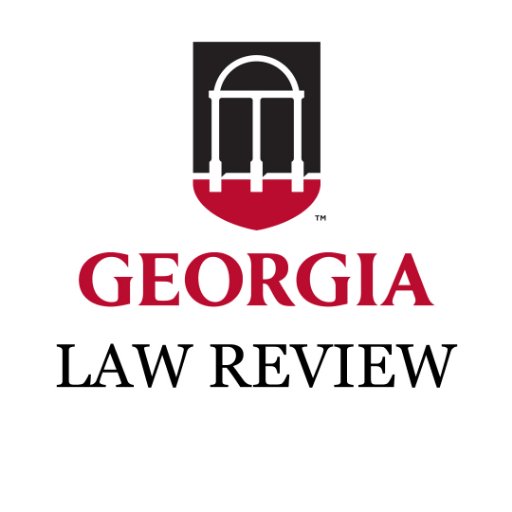 Georgia Law Review
Georgia Law Review
@GaLRev -
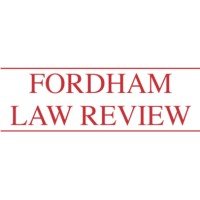 Fordham Law Review
Fordham Law Review
@FordhamLRev -
 Minnesota Law Review
Minnesota Law Review
@MinnesotaLawRev -
 Dᴇɴᴠ. L. Rᴇᴠ.
Dᴇɴᴠ. L. Rᴇᴠ.
@denverlawreview -
 Duke Law Journal
Duke Law Journal
@DukeLawJournal -
 UC Law Journal
UC Law Journal
@uclawjournal -
 Southern California Law Review
Southern California Law Review
@SCalLRev -
 Northwestern University Law Review
Northwestern University Law Review
@NwULRev -
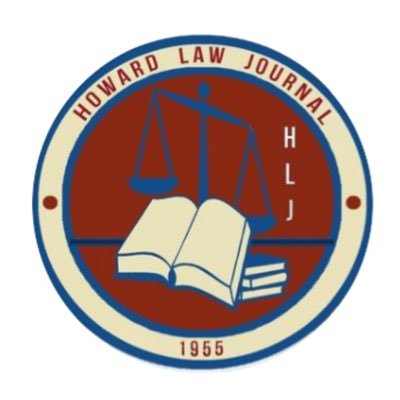 Howard Law Journal
Howard Law Journal
@HULawJournal -
 Penn State Law Review
Penn State Law Review
@PennStLRev -
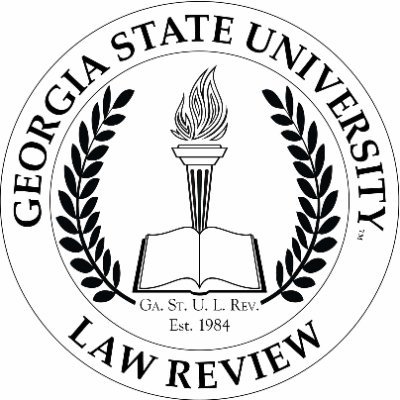 GSU Law Review
GSU Law Review
@GSULawReview -
 Wᴀᴋᴇ Fᴏʀᴇsᴛ L. Rᴇᴠ.
Wᴀᴋᴇ Fᴏʀᴇsᴛ L. Rᴇᴠ.
@WFULawReview -
 Case Western Reserve Law Review
Case Western Reserve Law Review
@CaseWRsrvLRev
Something went wrong.
Something went wrong.

















































